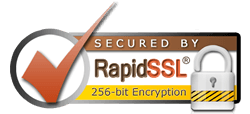Money for Any Reason You May Need!
A quick and easy way to get the loan you need today!
Blog
By Brenda
How the Affordable Care Act will Affect Your 2014 Taxes
Obamacare, also known as the Patient Protection and Affordable Care Act of 2010, is in full effect and will have an impact on your income taxes this year. This can either be a good or bad thing, depending on your insurance status and whether you file your taxes correctly. This year, errors on tax returns wonق€™t be denied, they will just be sent to the errors department, which means your tax return could end up being severely delayed. Under this legislation, all Americans and legal residents and their dependents will be required to have health insurance for a whole year starting on January 1, 2014. If you didnق€™t have health insurance throughout the year, you will have a tax fee to pay. There are only a few exceptions to this requirement. To learn more about how the Affordable Care Act will affect your taxes in 2015, read on.
What if I Already Had Medical Insurance?
If you already had a health insurance plan through your employer or a private company and didnق€™t want to change, then you wonق€™t have to do anything. Just make sure that you were covered from Jan. 1, 2014 up until Dec. 31, 2014. Then renew your policy or shop for a new health plan in the marketplace during the 2015 Open Enrollment period. Youق€™ll need to look over the Affordable Care Act to ensure that you have adequate insurance. It goes over the minimum essential coverage needed for Medicaid, Medicare, employer insurance and so on.
Reporting Health Insurance Coverage on Tax Return
There are specific forms youق€™ll need to fill out during your taxes. For those who obtained their health insurance through the Health Insurance Marketplace exchange in 2014 will receive Form 1095-A. Those who kept their own insurance will be given a Form 1095-B from their insurance company, which has all the information needed to report on their tax return. Those with employer coverage will receive Form 1095-C. Those who purchased health insurance via the Marketplace will be eligible for the Premium Tax Credit available by filing Form 8962. Lastly, those who are exempt from health care coverage will need to fill out Form 8965.
What if You Donق€™t or Wonق€™t Have Coverage?
If you opt out of getting health insurance even though you could afford it, then you will have to pay a fee called the individual shared responsibility payment at the time of your tax return filing for 2014. There are only a few exemptions you can claim to get out of paying the fee. Otherwise, your tax refund will either be lower or you will have to pay higher taxes.
What if I Couldnق€™t Afford Health Coverage?
If your household income falls between 100% to 400% of what the federal poverty guidelines state, and you didnق€™t qualify for Medicaid, Medicare or employer-sponsored health insurance, you will qualify for a subsidy, which will pay some or all of the fee for health coverage that is purchased through an exchange. The subsidy is really a federal tax credit, known as the Premium Tax Credit. This is pretty much a discount for your insurance premium. Additional funds and cost-sharing assistance is available to households with incomes below the 250% poverty level. The federal poverty level is between $11,670 for an individual to $40,090 for a family of 8.
Tax Payment for Not Having Medical Coverage
The fee for not having medical coverage is based on a flat rate, or the percentage of your household income, whichever is higher. For example, the flat rate is $95 per adult and $47.50 per child, but no more than $285 per family. However, the percentage of household income for 2014 is one percent of taxable income earned over the minimum-filing amount according to your filing status. But it wonق€™t exceed the cost of the bronze level health plan that was available in the Marketplace in 2014. This will rise in 2015 ($325 per adult, $162.50 per child and $975 per family) and in 2016 ($695 per adult, $347.50 per child and $2,085 per family).
Penalty Fee Exemptions
Hereق€™s a look into exemptions that are available:
- You went without insurance for less than three months in 2014
- The cheapest coverage was above 8% of your total income
- You weren’t required to file taxes because income was too low
- You are a part of a recognized religious group that objects health insurance
- You are a current member of any federally recognized health care sharing ministry
- Youق€™re a Native American eligible for services with an Indian Health Services provider
- You were either jailed or you were detained
- Youق€™re not a U.S. Citizen, U.S. National or alien lawfully living in America
- You filed for bankruptcy within last six months
- You were homeless
- You have a shut-off notice from a utility provider
- You have medical bills that have piled up in the last two years that you couldnق€™t pay, leading to high debt
- Your individual insurance policy was canceled and you couldnق€™t find an affordable Marketplace plan
- Your property was damaged by fire, floor or other disaster caused by nature or humans.
To file for exemption, you will need to attach Form 8965 or apply for it using the correct Health Insurance Marketplace form, which will be based on your circumstances.
Related Posts


